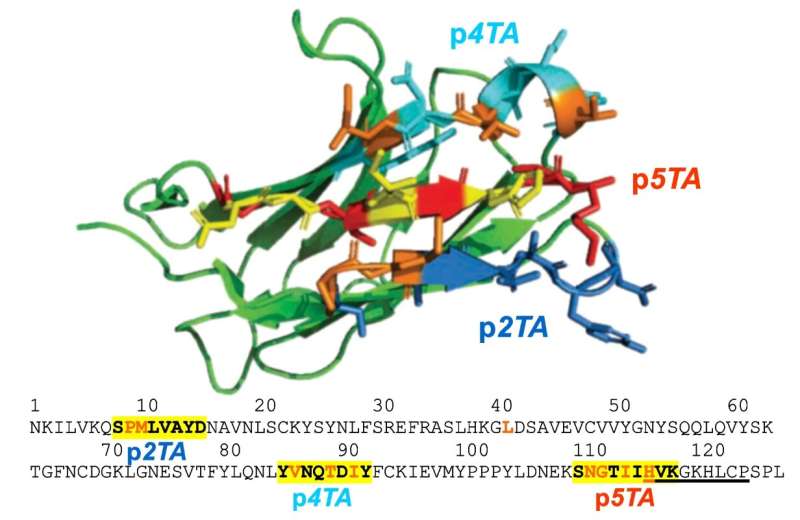This article has been reviewed according to Science X's editorial process and policies. Editors have highlighted the following attributes while ensuring the content's credibility:
fact-checked
trusted source
proofread
New hope for inflammatory disorders: Controlling dangerous immune response

The inflammatory response is indispensable for protective immunity, yet microbial pathogens often trigger an excessive response, a "cytokine storm," harmful to the host. Despite recent advances in our understanding of inflammatory signaling, how to prevent a cytokine storm remains a challenge.
A new study has uncovered exciting possibilities for treating inflammatory disorders and preventing cytokine storms, which can be damaging to the body and even cause death. Scientists have discovered that particular domains within key mediators of our immune response, called B7 and CD28 receptors, have a crucial role in enabling the inflammatory response and can be targeted with man-made molecules to manage immune responses and inflammation. These findings bring us one step closer to developing effective treatments for inflammatory diseases.
A team of researchers at the Faculty of Medicine of the Hebrew University of Jerusalem, conducted this study with the aim of understanding how our immune system works and why it sometimes goes into overdrive during severe infections and autoimmune diseases. They created small copies of specific domains within the B7 and CD28 receptors, called mimetic peptides, to investigate how these affect the production of inflammatory molecules.
The study's results showed that these mimetic peptides successfully reduced the interaction between B7 and CD28 receptor proteins and thereby lowered the production of inflammatory molecules in human immune cells. This suggests that they could be used to develop treatments for inflammatory disorders, for example, in bacterial infections, in severe sepsis, and in viral infections involving lung injury such as influenza and corona. The results are published in the Journal of Biomedical Science.
Excitingly, when tested on mice, these mimetic peptides provided significant protection against lethal toxic shock caused by a harmful bacterial toxin that kills by eliciting an inflammatory cytokine storm. Even at exceedingly low doses, the specific B7-1 and CD28 mimetic peptides showed remarkable effectiveness in preventing the harmful effects of the toxin and protecting from death.
"Our findings demonstrate for the first time the critical role played by these B7 and CD28 receptor domains in controlling immune responses and inflammation," said Prof. Raymond Kaempfer, of the Faculty of Medicine at the Hebrew University of Jerusalem. "By selectively reducing inflammation yet without completely stopping it, we may be able to protect against cytokine storms associated with severe infections and autoimmune diseases."
This research opens up new possibilities for developing targeted therapies that can balance immune activation needed to protect from pathogens yet prevent excessive inflammation. By regulating the interaction between B7 and CD28 receptors, we may be able to fine-tune the immune response and prevent harmful inflammatory reactions.
More information: Andrey Popugailo et al, The homodimer interfaces of costimulatory receptors B7 and CD28 control their engagement and pro-inflammatory signaling, Journal of Biomedical Science (2023). DOI: 10.1186/s12929-023-00941-3



















